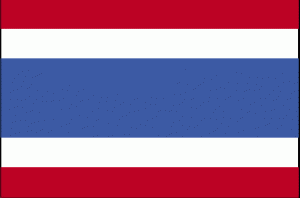We, the undersigned organizations from Thailand, are writing this letter to express our grave concern over the Indian Government’s shift in their position on the EU-India bilateral free trade agreement (FTA), which is to compromise with the EU’s demands on strict intellectual property (IP) protection, IP enforcement, investment, and other TRIPs plus provisions in the FTA that will be concluded and signed in April 2013.
At the moment millions of men, women and children worldwide are dependent for the present and future health and well-being on the low cost, quality medicines produced in India. In particular millions of people with HIV are able to lead a healthy life, thanks to the antiretroviral drugs produced in India. These drugs are purchased by governments, non-governmental organizations and other agencies for use in treatment programmes in Africa, Asia and South America.
For example, 67 % of medicines exports from India go to developing countries and 92% of HIV/AIDS patients in low and middle income countries use generic antiretroviral drugs mostly coming from India. Approximately 50% of the essential medicines that UNICEF distributes in developing countries and 80% of all medicines distributed by the International Dispensary Association (IDA) are manufactured in India. Lesotho, buys nearly 95% of all ARVs from India and in Zimbabwe, 75% of tenders for medicines for all public sector health facilities are from India.
Here in Thailand, we are particularly concerned about maintaining a continuous supply of Indian generic medicines for use in the Universal Coverage Scheme which ensures free access to treatment for all Thais. Several Indian generic medicines, such as HIV drugs (efavirenz and lopinavir/ritonavir) and heart-disease medicine (clopidogrel), are supplied to the public health system under government-use compulsory licenses. The Thai National Health Insurance Scheme would face major financial constraints if the supply line of Indian generic medicines is disrupted due to the Indian government accepting the conditions stricter than the WTO’s agreement on Trade-related Aspect of Intellectual Property Rights, known as TRIPS plus provisions, and the foreign investment’s protection mechanism in the investment chapter, known as investor-state dispute settlement (ISDS), in the India-EU FTA.
With the looming threat of these supply lines being disrupted by TRIPS plus provisions and conditions in the investment chapter that are seriously demanded of the Indian Government by the EU’s FTA negotiators, we request that the Indian Government stand firm on their position of refusing all TRIPS plus provisions and the inclusion of IP in the investment chapter that maybe included in the final agreement. In particular, we request that special care is taken to avoid the inclusion of several elements that may affect global access to the supply of current and future medicines produced by Indian pharmaceutical companies. These include the following TRIPS plus measures:
- Patent term extension*, which will prolong the patents by a number of years.
- Data exclusivity*, which will make registration of generic versions of medicines difficult.
- Enforcement provisions*, which require India’s Executive and Judiciary to prioritise the enforcement of private patent rights and which will effectively deter generic competition.
- Border measures*, which will make export of medicines from India to other developing countries difficult, if not impossible.
- Investment chapter and the Investor-State Dispute Settlement*, which will put the Indian Government at risk to be sued by investors, if the Indian Government legislates laws and/or enforces social policies affecting their revenues.
With such threats to the pipeline of essential generic medicines for the developing world, we request the Government of India to remain strong in ensuring that in no Free Trade Agreement does India sign away her rights under international law. None of the restrictive provisions mentioned above are required under the WTO’s TRIPS Agreement, and this is reaffirmed by the November 2001 Doha Declaration on TRIPS and Public Health.
Sincerely yours,
FTA Watch
Thai Network of People Living with HIV/AIDS
AIDS ACCESS Foundation
Alternative Agriculture Network
Friends of Kidney-failure Patients Club
Cancer Patient Network
Foundation for Consumers
The Rural Pharmacist Foundation
The Rural doctor foundation
Foundation for AIDS Rights
Thai NGO Coalition on AIDS
Drug Study Group
Biodiversity and Community Right Action Thailand, (Biothai)
Health Consumer Protection program, Chulalongkorn University
Social Pharmacy Research Unit, Chulalongkorn University
Drug System Monitoring and Development Program, Chulalongkorn University
Thai Holistic Health Foundation
Ecological Alert and Recovery – Thailand
cc: Mr. Amand Sharma, Minister of Commerce and Industry
Mr. Rajeev Kher, Additional Secretary, Ministry of Commerce and Industry
Mr. Saurabh Chandra, Secretary, Department of Industrial Policy and Promotion (DIPP), Ministry of Commerce & Industry
D.V. Prasad, Joint Secretary, Department of Industrial Policy and Promotion (DIPP), Ministry of Commerce & Industry
Mr. Keshav Desiraju, Additional Secretary, Department of Health and Family Welfare, Ministry of Health and Family Welfare





